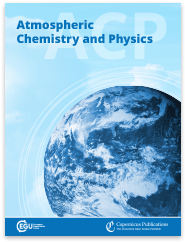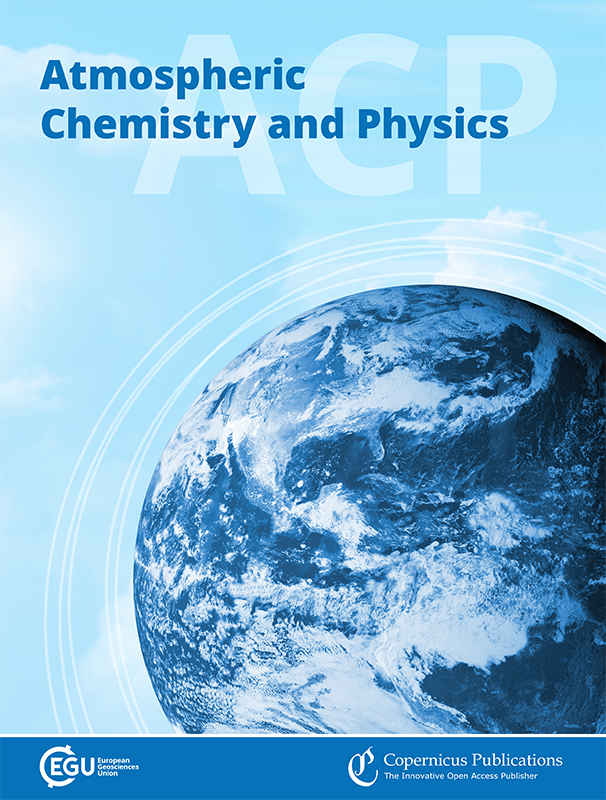
Atmospheric Chemistry and Physics (ACP) is a not-for-profit international scientific journal dedicated to the publication and public discussion of studies investigating Earth's atmosphere and the underlying chemical and physical processes. ACP publishes studies with important implications for our understanding of the state and behaviour of the atmosphere and climate, including the troposphere, stratosphere, and mesosphere.
Topics include gases, aerosols, clouds, precipitation, dynamics, radiation, and their role in the Earth's climate system (including the biosphere, hydrosphere, and cryosphere). Research activities include laboratory studies, field measurements, remote sensing, modelling and data analysis, and machine learning (for details see journal subject areas).
News
Highlight articles
Recent papers
Scheduled special issues
Notice on the current situation in Ukraine
To show our support for Ukraine, all fees for papers from authors (first or corresponding authors) affiliated to Ukrainian institutions are automatically waived, regardless if these papers are co-authored by scientists affiliated to Russian and/or Belarusian institutions. The only exception will be if the corresponding author or first contact (contractual partner of Copernicus) are from a Russian and/or Belarusian institution, in that case the APCs are not waived.
In accordance with current European restrictions, Copernicus Publications does not step into business relations with and issue APC-invoices (articles processing charges) to Russian and Belarusian institutions. The peer-review process and scientific exchange of our journals including preprint posting is not affected. However, these restrictions require that the first contact (contractual partner of Copernicus) has an affiliation and invoice address outside Russia or Belarus.



